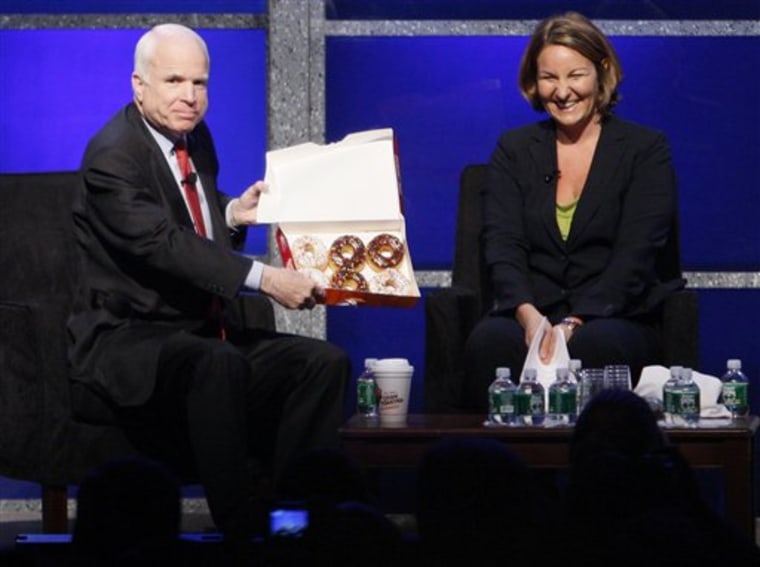Sen. John McCain announced his support Monday for legislation protecting the identity of confidential news sources.
The Republican presidential nominee-in-waiting coupled his announcement with a challenge to the media to acknowledge its errors "beyond the small print on a corrections page."
Appearing at the annual meeting of The Associated Press, McCain also said he believes the economy is in a recession, a statement that Bush administration officials have declined to make. "The important factor here is that Americans are hurting," he said.
In addition to a formal speech, McCain answered questions in a more relaxed setting designed to duplicate the atmosphere aboard his campaign's "Straight Talk Express," the bus where he fields questions from reporters.
He fenced with two questioners about his thoughts on a running mate, and responded with his trademark humor when asked about the impact of his age on his chances for winning the White House. "We outcampaign all of them," the 71-year-old senator said, adding that if anyone doubts his energy, they should "check with my 96-year-old mother."
A license to do harm?
McCain said his decision to support a reporters' shield law was a close call.
"It is, frankly, a license to do harm, perhaps serious harm. But it also is a license to do good; to disclose injustice and unlawfulness and inequities; and to encourage their swift correction," the Arizona senator said.
"I know that the press that disclosed security secrets that should have remained so also revealed the disgrace of Abu Ghraib, a disgrace that made it much harder to protect the American people from harm," he added.
At the same time, he said, "There will be times, I suspect, when I will wonder again if I should have supported this measure. But I trust in your integrity and patriotism that those occasions won't be so numerous that I will, in fact, deeply regret my decision."
